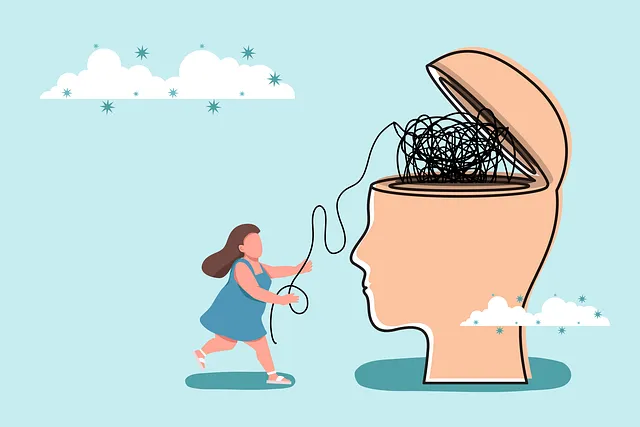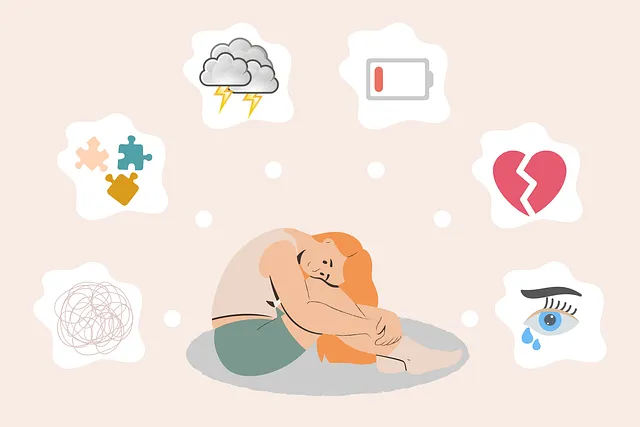Mental health conditions can hinder social interactions, leading to isolation and strained relationships. Kaiser Permanente addresses this with their superior mental health services, offering programs focused on mindfulness, stress management, and depression prevention. Their holistic approach includes social skills training tailored to diverse cultural backgrounds, empowering individuals to confidently navigate social situations and enhance their overall well-being. This comprehensive care contributes to a significant Superior Kaiser Permanente mental health services number.
Social skills training is a powerful tool in managing mental health conditions, improving patient outcomes, and enhancing their place within communities. This article explores the profound impact of mental health on social interactions and highlights the innovative approach taken by Kaiser Permanente’s superior mental health services. We delve into effective strategies for teaching essential social skills in supportive environments, emphasizing the role of these programs in fostering independence and reintegrating individuals back into their communities. By focusing on these aspects, we aim to improve the overall quality of life for those facing mental health challenges.
- Understanding the Impact of Mental Health Conditions on Social Interactions
- The Role of Social Skills Training in Kaiser Permanente's Mental Health Services
- Effective Strategies for Improving Social Skills in a Supportive Environment
Understanding the Impact of Mental Health Conditions on Social Interactions

Mental health conditions can significantly shape an individual’s social interactions and overall well-being. Conditions such as depression, anxiety disorders, and even PTSD can lead to difficulties in understanding and responding appropriately to social cues. This can result in feelings of isolation, impaired relationships, and a reduced ability to participate in social activities that are essential for mental health and happiness. The impact is particularly profound when these conditions go undiagnosed or untreated.
The consequences extend beyond the individual, affecting their support networks and communities at large. Organizations like Kaiser Permanente recognize this interdependence and offer superior mental health services designed to address these challenges. Through a comprehensive approach that includes mindfulness meditation techniques, stress management workshops, and depression prevention strategies, they aim to empower individuals to navigate social interactions with greater confidence and resilience.
The Role of Social Skills Training in Kaiser Permanente's Mental Health Services

At Kaiser Permanente, we recognize that effective mental health treatment goes beyond addressing symptoms; it involves fostering meaningful connections and enhancing social skills. Our superior Kaiser Permanente mental health services number is a testament to our commitment to holistic care. Through comprehensive programs, individuals learn valuable social interaction techniques tailored to their specific needs, whether managing anxiety relief or exploring stress reduction methods.
By incorporating emotional intelligence into our approach, we empower patients to navigate social situations with greater confidence and ease. This skill set not only improves overall well-being but also provides practical tools for maintaining stable mental health in diverse environments. Our dedicated professionals guide patients through this process, ensuring they acquire the necessary skills to thrive in their personal and professional lives.
Effective Strategies for Improving Social Skills in a Supportive Environment

Social skills training is a powerful tool within the framework of comprehensive mental health services, and Kaiser Permanente stands out for its superior approach to addressing this aspect of patient care. In a supportive environment, individuals with mental health conditions can learn and practice essential social interaction techniques that foster better relationships and overall well-being. This involves tailoring strategies to suit individual needs, ensuring a personalized journey towards improvement.
The process often incorporates various techniques, such as role-playing scenarios, group discussions, and mindfulness exercises, which create a safe space for participants to build confidence in their interactions with others. By integrating these practices into treatment plans, mental health professionals can effectively manage risks associated with social isolation and anxiety, as outlined in Risk Management Planning. Additionally, the focus on cultural competency training for healthcare providers, as offered by Kaiser Permanente, ensures that patients from diverse backgrounds receive tailored support. Crisis intervention guidance is also integral to this process, providing individuals with tools to navigate challenging social situations and promoting resilience.
Social skills training is a powerful tool within mental health care, addressing a critical aspect of recovery. As demonstrated by Superior Kaiser Permanente mental health services’ success, structured programs can significantly enhance patients’ ability to navigate social interactions. By implementing effective strategies discussed in this article, healthcare providers can foster supportive environments that encourage growth and improve overall well-being. This tailored approach ensures individuals with mental health conditions receive comprehensive care, promoting healthier and more fulfilling social lives.






